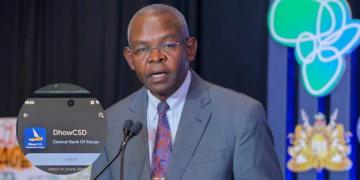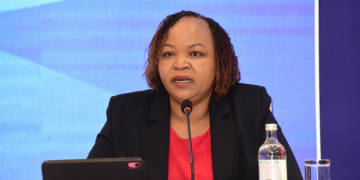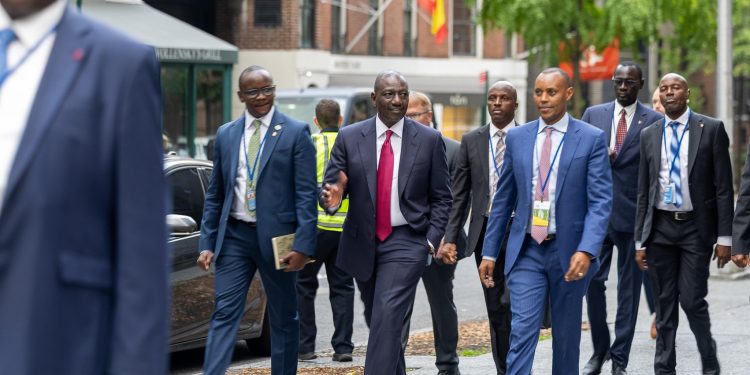When the world convened for the recently concluded 80th United Nations General Assembly (UNGA) in New York, there was an immense consensus on key global issues, as mirrored by the handshakes, differences of opinion, and respect for the another that coloured the crucial eight decades of this critical meeting.
Kenya significantly featured in this discourse not only as a regional diplomatic hub on the African continent, but also as a significant player in emerging global issues, especially in the areas of peace and security.
During the forum, which I attended in the company of Kenya’s President William Ruto and other dignitaries, there was cognizance and appreciation of the country’s efforts in multilateral collaboration. There was appreciation for Kenya’s resilience and adaptable reliance on key emerging global diplomatic fronts, such as climate change management, defense, and global security.
Lessons from Tragedy: The Westgate Reminder
I will, however, tilt this discourse to a tragic event that happened in Kenya in 2013, and whose anniversary also coincidentally fell on the same dates as the just concluded UNGA meeting in New York – the September 23 Westgate Mall terrorist attack.
It was a harrowing experience that tragically gave invaluable lessons on what is today one of the world’s greatest threats to humanity and human coexistence. Lives were lost, innocence was shattered, and existing security paradigms were challenged with monumental repercussions.
It exposed more than just our physical vulnerabilities but also asserted the necessity for not only deeper humanity, but the urgency for global collaboration and interdependence.
Intelligence Evolution and Shared Security
Within the corridors of the UN in New York, I reflected on the shared visions, challenges, and diplomatic gaps that have led us to this point as a world and as a country—and how to collaboratively address the global menace of terrorism.
While there, I picked a few lessons from the United States’ global security and counterterrorism strategies, and especially the evolutionary journey of the Central Intelligence Agency (CIA), which incidentally mirrors and has been a reliable partner for decades with an integral Kenyan entity – the National Intelligence Service (NIS) – oversighted by the National Assembly Committee that I chair.
Rising from the ashes of the August 1998 bombing of the US Embassy in Nairobi and subsequent terror attacks, including the devastating Westgate attack, I realized that just like the CIA, Kenya’s NIS too has evolved to be a dependable, smarter, faster, and agile counterterrorism entity in this global war to restore humanity.
Also Read: Kenya Police Elite Squad Guns Down Al-Shabaab Terrorists
As we evolve, however, so do the enemies of human coexistence and their methods, including but not limited to the online—read, global weaponization of ideology, turning innocent minds into lone wolves that strike without warning or provocation. Such was the Westgate attack.
The Way Forward: United Against a Global Menace
Sadly, terrorism is no longer just about bombs, but also about more potent emerging threats such as cybercrime, which now, more than ever before, calls for deeper collaboration. The CIA journey offers valuable lessons on counterterrorism, and so does NIS post-Westgate attack.
World over, the doctrine of intelligence is founded on the strength and credibility of those who produce it. This has been the masterpiece of the indelible diplomatic connection between Kenya and global superpowers, including the United States.
In Kenya’s NIS, the world has a credible originator of actionable intelligence to deal with this monster called terrorism in whatever form—traditional or modern.
Also Read: Putin Accuses Ukraine of Sponsoring Terrorists in Africa
I summed up my reflections as my eyes panned across the UN General Assembly Hall, and in it, I saw not only the potential of great minds of our generation in this resolve, but also the enclave of hearts where this collaborative will to combat the global war on terror can begin.
I reflected on my return home, rather troubled by the Westgate anniversary—whereby, by the grace of God and the humble work of our very own NIS and other security agencies, much of the success had largely gone unnoticed. Perhaps for the better.
I flew back from New York with one invaluable lesson: the world must collaborate to end the war on terror.
This article was written by Nelson Koech, who is the Chairperson of the National Assembly Departmental Committee on Defence, Intelligence and Foreign Relations, and the Member of Parliament for Belgut.
Follow our WhatsApp Channel and X Account for real-time news updates.










































































